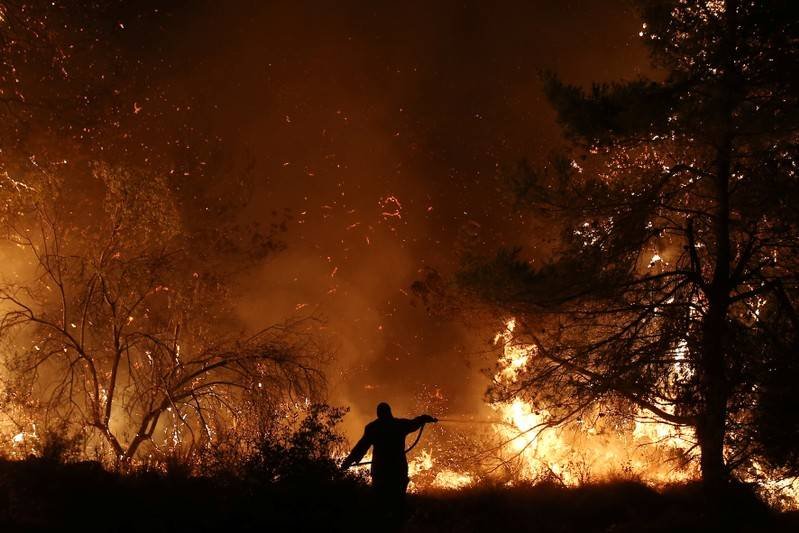French firefighters are battling a wildfire that has reached the outskirts of Marseille and injured more than 100 people.
The city’s mayor, Benoit Payan, told local media on Wednesday morning that the fire was “decreasing” but not totally under control.
The mayor posted on X that restrictions set yesterday on the suburbs of Marseille had been eased due to a “significant decline” in the spread of the fire.
According to the interior ministry, 110 individuals have been mildly hurt since Tuesday, including nine firefighters and 22 police officers.
At least 400 people have been evacuated from their homes, according to French media reports.
Residents had already been cautioned to stay home and not flee unless instructed to do so in order to keep roads clear for emergency vehicles.
Mayor Payan previously stated that the “marine firefighter battalion is waging guerrilla warfare, hoses in hand,” alluding to Marseille’s fire and rescue department.
According to French network BFMTV, the mayor stated that at its peak, the fire spread at a rate of 1.2 km (0.7 miles). He blamed a mixture of strong winds, dense foliage, and steep hills.
French President Emmanuel Macron, who was on a state visit to the UK, praised firefighters and urged Londoners to observe safety precautions.
“Our thoughts are with the injured and all residents,” he wrote on X.
Interior Minister Bruno Retailleau came to Marseille on Tuesday evening and met with municipal leaders.
He said some 800 firemen were on the site, and efforts to extinguish the flames would go “all night” because it had not yet been confined.
Flights from Marseille Provence airport will restart “without restrictions” at 9:30 local time (7:30 GMT) on Wednesday, but difficulties are expected.
The airport, one of France’s busiest, reopened partially around 21:30 local time on Tuesday after remaining closed all day.
The airport’s president, Julien Coffinier, stated that he had “never experienced a situation of this magnitude”.
The fire, which broke out earlier on Tuesday in Pennes-Mirabeau, north of Marseille, is reported to have consumed over 700 hectares (7 square kilometres).
According to local police, the fire was started by an automobile that caught fire on the road.
“It’s very striking – apocalyptic even,” Monique Baillard, a town resident, told Reuters. She stated that several of her neighbours had already fled.
As fire burnt in a steep location to the north of Marseille, footage showed massive plumes of smoke above the city.
According to BFMTV, there has been no rain in the Bouches-du-Rhône area since May 19.
Another wildfire in France, which started near Narbonne on Monday, is still burning, fuelled by gusts of 60 km/h (40 mph). Local officials said that approximately 2,000 hectares were burnt.
Other parts of Europe were also affected by wildfires, including Catalonia in northeastern Spain, where more than 18,000 people were instructed to stay at home on Tuesday due to a wildfire in the eastern province of Tarragona.
High winds overnight fuelled the flames, which had expanded across roughly 3,000 hectares (7,413 acres).
Several other regions of Spain, which had the warmest June on record, were on high alert for wildfires.
41 wildfires erupted around Greece on Monday. According to the fire service, 34 were contained early, while seven remained active until Monday evening.
A searing early summer heatwave struck most of western and southern Europe, igniting fires and forcing thousands of people to flee their homes.
Wildfires are generally highly complicated, combining several elements, making it impossible to determine if climate change caused or exacerbated a particular wildfire.
However, the UN’s Intergovernmental Panel on Climate Change (IPCC) has discovered that climate change increases the chance of hot and dry weather, which can result in wildfires.











